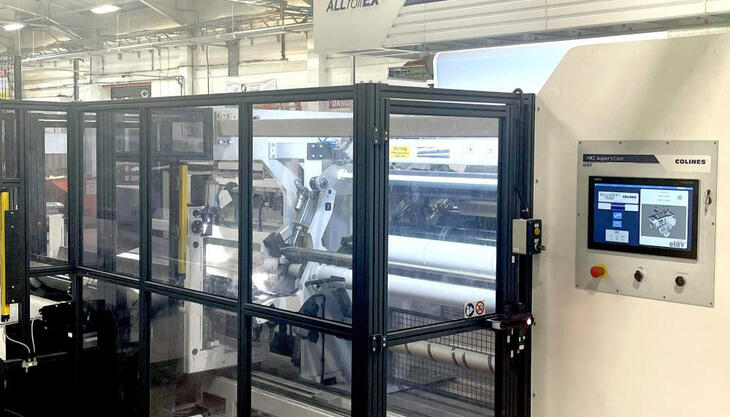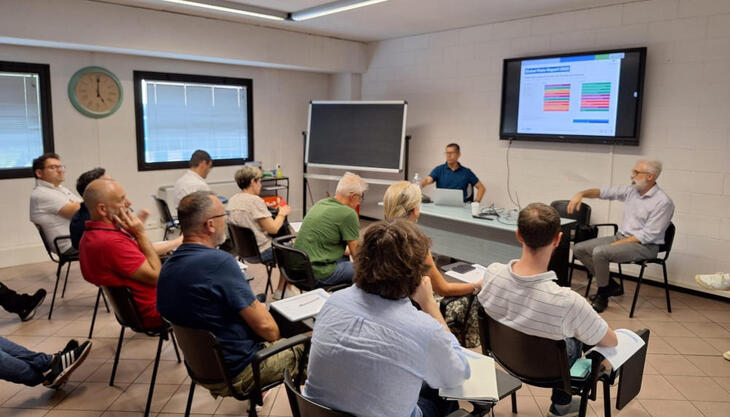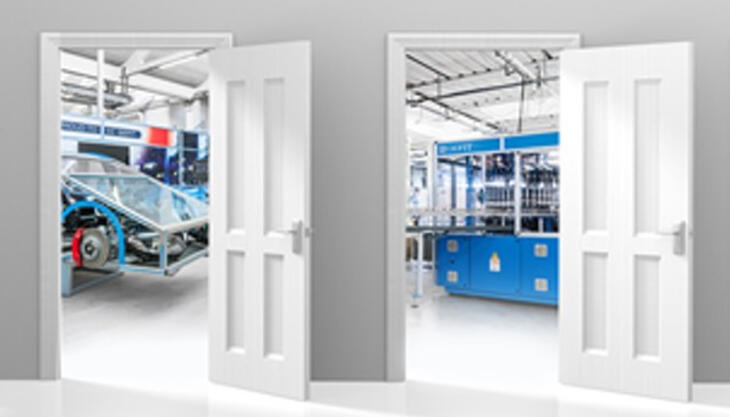Roteax ready for the circular economy
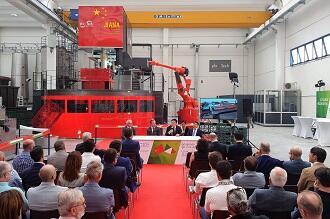
July 11 has been a historic date for Plaxtech. After 10 years of development and industrial tests, the company headquartered in Udine has delivered the first of 8 Roteax systems to Jiana Environmental Protection Science and Technology. The ceremony was held in front of a number of representatives from the Chinese government, the province of Shandong and the municipality of Dezhou.
Roteax technology is used to recover and recycle miscellaneous polyolefin-based plastic waste, which makes up more than 60% of plastics from urban and industrial collection that normally goes into incinerators or landfills, and to convert it into secondary raw materials. This way, Roteax systems deliver a positive contribution to the circular economy.
The miscellaneous waste material in the Roteax system is pretreated and transformed into a homogeneous conglomerate, which is then processed by multiple low-pressure injections through wide valves that uniformly fill the mould. The system consists of a n injection moulding machine with four moulds which can indiscriminately produce four different objects of varying weight and form.
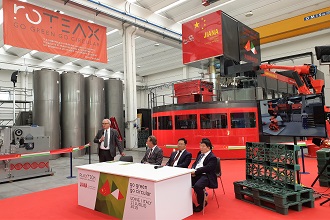 Recycled and recyclable "eco-friendly" pallets
Recycled and recyclable "eco-friendly" pallets
The key items made using Roteax include "eco-friendly" pallets made entirely from mixed waste plastic that cannot be used in other processes.
These pallets meet the UNI-EN-ISO technical specifications relating to load (static and dynamic output, stacking stability), they last 10 times longer than wooden pallets and, once they reach their end of life, they can once again be recycled using the Roteax system. The mechanical characteristics of the eco-friendly pallets are similar to pallets made in virgin plastics with traditional technology, while production costs are significantly lower.
Roteax is currently used by a major industrial group that produces plastic for the construction and heating industry and will be used in a GDO service centre in Italy.
The volume of the world pallet market in 2019 is estimated to be more than 5 billion pieces and is expected to exceed 7 billion in 2025. Wooden pallets account for 85% of demand, while plastic ones account for about 10%. According to forecasts, plastic pallets will record significant growth in the period 2020-2025, in particular because of their flexibility and recyclability. Asia, China first and foremost, meets more than a third of global demand for pallets and in the period 2018-2025, its share is expected to grow by 8% a year.
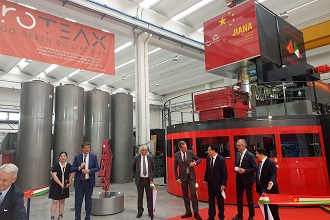 Roteax in China
Roteax in China
In this context, the agreement signed in August 2017 by Plaxtech and Jiana Environmental Protection Science and Technology assumes particular importance, with the former giving the latter the exclusive to use Roteax system technology and manufacture it in China for the Chinese and Asian market.
The Roteax machines were installed in a facility currently under construction in Dezhou, in the province of Shandong, which will launch production before the end of 2019. Each Roteax system can handle more than 7000 tons of recycled plastic and produce 500,000 pallets a year. The Dezhou facility was designed to manage 8 systems simultaneously, handling more than 50,000 tons of plastics and producing at least 4 million pallets a year. With the launch of the Roteax system, the Dezhou project will test a waste management organization model in China aimed at their collection and recycling to produce "eco-friendly" goods, starting with pallets.
From Friuli to Shandong
The agreement has high value in terms of industrial policy and is destined to have a significant economic-commercial impact. It is also a milestone for Plaxtech and the Friuli Venezia Giulia region, being the first initiative on a national level in the context of environmental economy and the Chinese Belt and Road initiative that unites three continents.
The Roteax system represents in fact a concrete application of the principles and regulations introduced by law in 2009 in China to promote the circular economy, and is coherent with the objectives established by the ban on import in China of plastic waste starting on 1 January 2018. Moreover, the production of recycled plastic pallets is destined to cover growing demand (more than 2.5 billion pieces by 2025 in China alone) of products alternative to wooden pallets, which are considered non-sustainable.
"With Roteax, we can proudly say we have shifted the market. Until a few years ago, it was unthinkable to consider miscellaneous plastic waste as a resource for the economy and environment. Today, thanks to Roteax, we have done it," declared Andrea Strizzoli, joint owner of Plaxtech with his son Matteo.
















